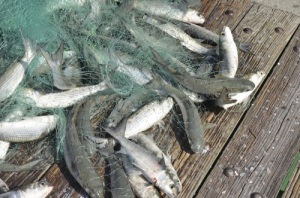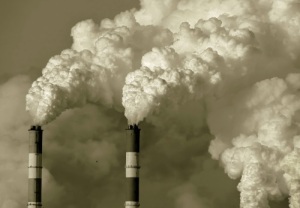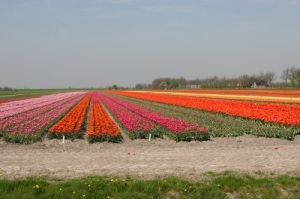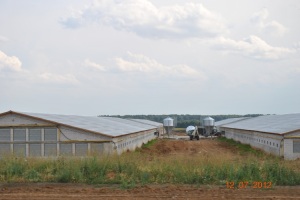Worldlog săptămâna 44 -2014
Haideți să începem săptămâna aceasta cu vești din Europa. Europarlamentarul nostru Anja Hazekamp și-a însușit lupta pentru interzicerea mega-plaselor de pescuit. În ele, nenumărați pești-spadă și toni se luptă vreme îndelungată cu moartea. Însă și păsări, delfini, balene și țestoase marine sunt prinse neintenționat și au parte de o moarte lentă în aceste plase.

Națiunile Unite au decis deja în 1992 că setcile în derivă ar trebui să fie interzise din pricina depășirii cotelor de pescuit și capturile secundare masive pe care acestea le provoacă. Însă Uniunea Europeană încă nu a îndepărtat în mod definitiv plasele din apele de pe teritoriul acesteia. În scopul eliminării definitive a setcilor în derivă, Comisia Europeană propune acum o interzicere totală. Super! Însă situația rămâne în continuare tensionată, deoarece un număr mare dintre partidele din Parlamentul European încearcă să blocheze interzicerea setcilor în derivă 🙁
În același timp, colega mea Esther Ouwehand a înaintat o moțiune ca acordul comercial cu Canada să nu fie încheiat atâta timp cât importul de petrol provenit din nisipuri bitumoase nu a fost interzis. Petrolul provenit din nisipuri bitumoase este cel mai poluant combustibil fosil de pe pământ, având o emisiune de CO2 de trei până la cinci ori mai mare decât petrolul convențional.

Recent s-a încheiat un acord liber de schimb între Uniunea Europeană și Canada, prin care interzicerea promisă a importului petrolului din nisipuri bitumoase a devenit imposibilă. Dorim ca guvernul nostru să nu ratifice acordul liber de schimb cu Canada!
Și rămânem încă în Europa. Fiindcă săptămâna trecută am adresat întrebări parlamentare despre subvențiile europene pentru promovarea florilor ce conțin multă otravă. Cosiliul Olandez pentru Flori și Plante primește subvenții din partea Uniunii Europene pentru o campanie de promovare. Acest buget vine din fondul de subvenționare pentru produse europene agricole și este intenționat în mod specific hrănii (deci nu florilor). Nu înțelegem de ce plătitorii de taxe trebuie să contribuie la aceasta.

Spre exemplu, la cultivarea crinilor (care sunt promovați folosind acești bani ai contribuabililor) se folosesc anual aproape 100 kg de otravă agricolă per hectar, cu toate consecințele care urmează din aceasta precum, printre altele, sănătatea populației, calitatea apei și bio-diversitatea. Dorim printre altele ca guvernul nostru să conteste promovarea florilor la Comisia Europeană!
De asemenea, am adresat sătpămâna trecută întrebări în legătură cu investițiile indirecte ale funcționarilor în baterii și crescătorii în străinătate prin fondul de pensii. Oficiul de examinare Profundo a efectuat cercetări din care reiese că instituțiile financiare neerlandeze investesc în crescătorii și în dezvoltarea bio-industriei în străinătate.

Spre exemplu, am înțeles că fondul de pensii al funcționarului neerlandez este acționar la crescătoria BRF în Brazilia. În această crescătorie nu există nicio legislație în domeniul bunăstării animalelor. În același timp, acest fond de pensii era acționar la Grupul tailandez Charoen Pokphand, producător de baterii industriale în China. Iar acest fond de pensii a avut în ultimii patru ani obligațiuni la producătorul de carne brazilian Marfrig Alimentos. Va urma!
Salutări, Marianne
This week I would like to start with news from Europe because our MEP Anja Hazekamp has started fighting for a ban on mega fishing nets. Numerous swordfishes and tunas get stuck and struggle against death in these giant fishing nets. But also birds, dolphins, whales and sea turtles become entangled in these nets and slowly die of suffocation.

The United Nations already decided in 1992 that the use of driftnets had to be prohibited because it caused overfishing and massive by-catches. But the European Union still hasn’t had the nets removed from its waters. The European Commission is now proposing a complete ban to stop the use of driftnets permanently. Brilliant! But it still isn’t over yet because a large number of parties in the European Parliament are trying to block the ban on driftnets 🙁
Additionally, my colleague Esther Ouwehand filed a motion to not enter into a trade agreement with Canada if they do not observe the import ban on tar sands oil. Tar sands oil is the most polluting fossil fuel on earth, representing three to five times the CO2 emission of conventional oil.

The European Union recently entered into a Free Trade Agreement with Canada, which makes the agreed import ban on tar sands oil impossible. That’s why we call on our government to not ratify the Free Trade Agreement with Canada.
And we’re not leaving Europe yet. Last week we raised parliamentary questions about the European subsidies for the promotion of flowers that contain many toxins. It is a fact that the Bloemenbureau Holland (Flower Council) receives subsidy from the European Union for its promotion campaign. The budget is received from the subsidy scheme for European agricultural products and is especially intended for food (thus not for flowers). We can’t understand why the taxpayer has to contribute to this.
For example, 100 kilos of agricultural pesticides per hectare are used for the breeding of lilies (which are promoted with tax money) on an annual basis, with all associated consequences for public health, the quality of water and biodiversity. We call on our government to lodge a notice of objection with the European Commission to the promotion of flowers!
Last week we also raised questions about the indirect investments of public-sector workers through pension funds in battery farms and mega stables abroad. The research consultancy Profundo investigated this, and it appeared that Dutch financial institutions are investors in mega stables and in the developments of factory farming abroad.
For example, we learned that the pension fund of Dutch public-sector workers is a shareholder in the BRF mega stable in Brazil. There is no legislation for animal welfare in this mega stable. Also, the pension fund was a shareholder in Thailand’s Charoen Pokphand, which is building giant battery farms in China. And this pension fund also held bonds of the Brazilian meat company Marfrig Alimentos for the last four years. To be continued!
Greetings, Marianne